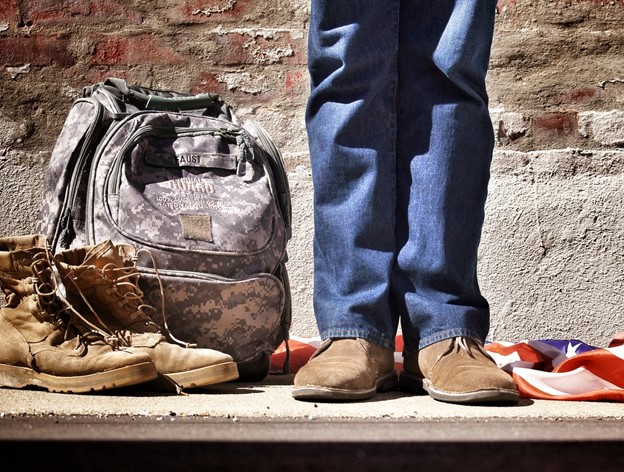The First Step Is Asking For Help
- November 14, 2021
- Steph O. Website Administration
- No Comments

Alex is a US veteran who completed tours in Afghanistan and Iraq. He recently returned to his hometown in Illinois where he lives with his mom and 10-year-old son. It was a struggle to find work so he decided to drive for Uber and Lyft. Unfortunately, an encounter in Afghanistan left him in chronic pain due to an injury affecting his left leg and it has limited the types of work he can pursue. On days when the pain seems to get out of control, he stays at home to avoid exacerbating it. He has been seeing a physician since he returned stateside; one he has been going to since he was a teen. After some tests, the doctor referred him to get X-rays taken and a surgeon for him to be evaluated for another surgery. After careful examination, he underwent the procedure and although the pain was not as bad as it once was, it was still there. Some days it was still painful enough to avoid going outside.
Alex continued to follow up with his childhood physician as he always felt safe in his presence, yet, eventually, the physician realized there was something else bothering Alex. These visits went from a span of 6 to 12 months and the physician noted that Alex was not getting enough sleep; looking exhausted and was drained of energy. When confronted, he even struggled to muster up adequate responses.
During one appointment, the office administrator, Ms. Jennings, walked in after slightly knocking on the door but did not announce herself when she entered. She handed Alex’s medical file to the doctor and Alex, unusually hyper, alert, and easily startled, jumped in his seat after noticing her presence. At his reaction Ms. Jennings apologized to Alex, stating she did not mean to surprise him. Eventually, the doctor discovered Alex was experiencing recurring nightmares of an incident, which occurred in the Middle East and caused him to injure his leg. He admitted he did not feel comfortable telling anyone about these events that occurred and should not be shared as to not become a burden to those who were not present. He also deeply believed that the nightmares would eventually stop.
Alex began to share when the nightmares started intruding into his daytime life. It happened once while waiting at a red light in his car where he felt as if he was transported back in time to that specific time and place. He began to relive that traumatic event in broad daylight and when it was over, he was frightened, drenched in sweat, and could hear a loud beeping horn from behind urging him to move before the traffic light switched back to red. The flashbacks took an emotional toll and now they also began to impact his work.
After talking with his doctor, Alex felt less hopeless. His physician provided him with treatment options and suggested he talk to a therapist. Alex was not comfortable doing that, so as an alternative, the physician suggested Alex attend peer recovery support sessions at a local community center. He also asked Alex if any of his fellow service members, whom he was close to, were nearby and if he was in contact with them. One of his closest friends that served with him was an hour away and they still stayed connected. The doctor proffered that Alex could invite him to attend together or that it would be good for them to just talk and hang out sometimes.
Peer-to-peer recovery consists of a group session led by a nonclinical peer and coach that help those who attend develop and follow through on a plan to recover from substance abuse and/or cope with a mental illness. The Journal of Substance Abuse Treatment has found that with the addition of peer-delivered recovery support services there was an increased average of days substance users in the study group remained abstinent. And though more studies are needed to strengthen the current results of the impact of peer recovery support on those with severe mental illnesses, a study did show that peer services caused an “improvement favoring peers.”
If you are a veteran and cannot find work, are homeless, and/or suffering from symptoms of post-traumatic stress disorder, please stop by RPSV for assistance or join our peer recovery meetings that can be accessed online. We will do what it takes to get you back on your feet! RPSV Cares! Rpsva.org
By Guest Blogger Almira Mohammed (Future Doctor)

